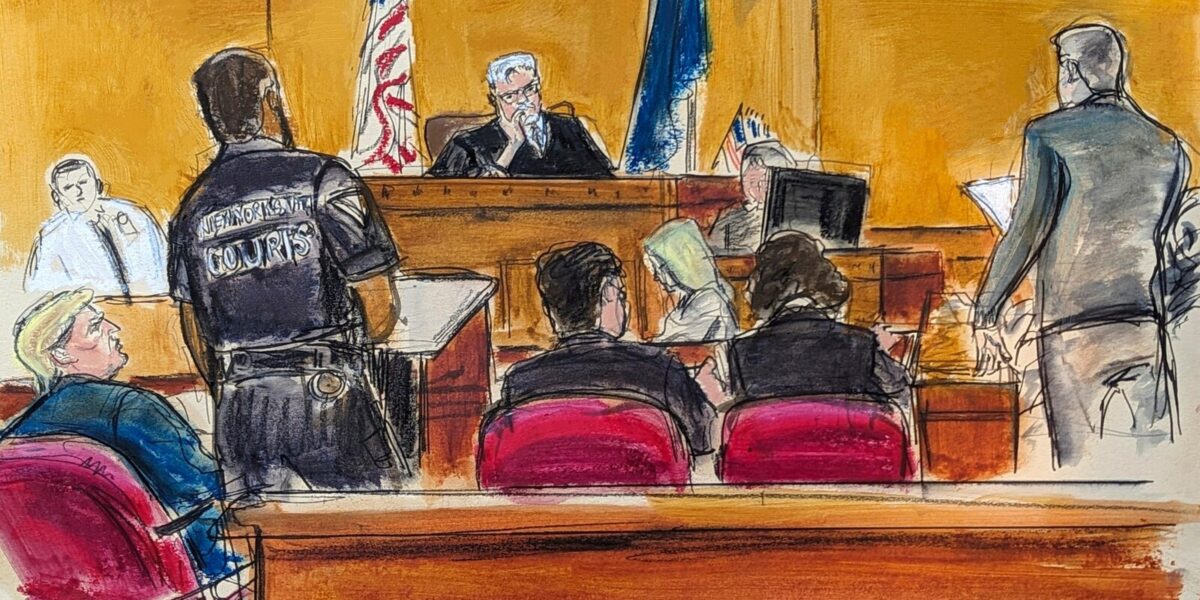NEW YORK — A day after a New York jury delivered a historic guilty verdict in Donald Trump‘s criminal hush money trial, the presumptive Republican presidential nominee will likely look to cast the conviction and his campaign in a new light.
The former president is expected to hold a news conference at Trump Tower late Friday morning.
Following his conviction on Thursday, Trump angrily denounced the trial as a “disgrace,” telling reporters he was an “innocent man.”
His supporters were quick to echo those sentiments while many of his critics — political and otherwise — applauded the verdict.
Trump was convicted of 34 felony charges in a scheme to illegally influence the 2016 election through a hush money payment to a porn actor who said the two had sex. The hush money trial and subsequent conviction mark the first time a former U.S. president has ever been tried or convicted in a criminal case.
He still faces three other felony indictments, but the New York case was the first to reach trial and likely the only one ahead of the November election.
Judge Juan M. Merchan scheduled Trump’s sentencing for July 11. The charges are punishable by up to four years in prison, though the punishment would ultimately be up to Merchan. Manhattan District Attorney Alvin Bragg declined to say whether prosecutors would seek prison time.
Currently:
— What to know about the guilty verdict in Trump’s hush money trial
— Photos: A visual look at the past seven weeks at Donald Trump’s hush money trial
— How Trump’s conviction affects the 2024 presidential race
— Trump could still vote for himself if he’s not in prison on Election Day
— Trump investigations: The status of the cases brought against him
Here’s the latest:
Several Republican lawmakers reacted with fury to Donald Trump’s felony conviction on Thursday and rushed to his defense — questioning the legitimacy of the trial and how it was conducted.
House Speaker Mike Johnson said it was a “shameful day in American history” and labeled the charges as “purely political.”
South Carolina Sen. Lindsey Graham, who has been one of Trump’s most frequent allies, said, “This verdict says more about the system than the allegations.”
And while Senate Republican Leader Mitch McConnell refrained from attacking the judge or jury, he said the charges “never should have been brought in the first place.”
Many GOP lawmakers, including Johnson, visited the courthouse in New York to support Trump during his criminal trial.
Donald Trump may have been convicted of a felony and reside in Florida, a state notorious for restricting the voting rights of felons, but he can still vote as long as he stays out of prison in New York state.
That’s because Florida defers to other states’ disenfranchisement rules for residents convicted of out-of-state felonies. In Trump’s case, New York law only removes their right to vote when incarcerated. Once they’re out of prison, their rights are automatically restored — even if they’re on parole, per a 2021 law passed by the state’s Democratic legislature.
“If a Floridian’s voting rights are restored in the state of conviction, they are restored under Florida law,” Blair Bowie of the Campaign Legal Center wrote in a post explaining the state of law, noting that people without Trump’s legal resources are often confused by Florida’s complex rules.
Donald Trump’s conviction Thursday on 34 felony counts marked the end of the former president’s historic hush money trial.
Now comes the sentencing and the prospect of a prison sentence. A lengthy appellate process could follow, especially as Trump’s legal team has already been laying the groundwork for an appeal.
And all the while, the presumptive Republican presidential nominee still faces three more criminal cases and a campaign that could see him return to the White House.


